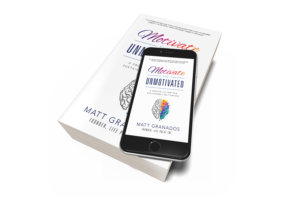For example, a person with social anxiety might be afraid of going to a party where there will be many people they do not know. Even simply thinking about attending the gathering might cause them anticipatory anxiety. Talk to your doctor about alcohol consumption before taking any of these medications, as side effects can be harmful or fatal. Alcohol-induced anxiety can last for several hours, or even for an entire day after drinking. Some studies on mice show that alcohol-related anxiety can last anywhere from 4 to 14 hours.
Generalized Anxiety Disorder and Panic Disorder
Have a sober hang with friends, go on a hike or walk, read a book, or host a movie or Netflix night. In fact, 50% of people receiving treatment for alcohol use disorder also live with an anxiety disorder. A night of drinking can bring up feelings of anxiety or jitteriness, even if you’re not diagnosed with an anxiety disorder. Alcohol affects the levels of serotonin and other chemicals in your brain, so it affects your body and mind in various ways the next day. The psychiatric, psychological, and neuroscientific disciplines have developed theories to explain the association between alcohol and anxiety disorders.
Anxiety and Alcohol: Does Drinking Worsen Symptoms?
- While you might feel that it works in the short term, it’s more likely to cause you problems in the long run.
- About 20 percent of people with social anxiety disorder also suffer from alcohol dependence.
- In addition, if you’re noticing your anxiety levels increasing after drinking, try cutting down on how much you drink.
- Central to this strain is the assumption that specific diagnostic dyads are the appropriate unit of analysis for studying co-occurring negative affect and alcohol misuse.
- Additionally, panic attacks can be triggered because of the effect alcohol has on GABA, another brain chemical that normally has a relaxing effect.
For augmenting treatment for AUD, would targeting biological stress reactivity (e.g., hypothalamic pituitary adrenal activation) be more promising than targeting anxiety disorders? Among people who have problems with alcohol, do those with versus those without co-occurring anxiety disorder react differently to protracted abstinence and withdrawal in terms of severity and persistence of dysregulation of the stress response? Prospective studies across the distinct stages of treatment and recovery for alcohol-related disorders may shed needed light on the relationships between alcohol, anxiety, and stress reactivity and regulation.
Like what you’re reading? Subscribe to our newsletter and get the same great content delivered straight to your inbox!
Given the possible connection, it’s not surprising that research has also shown that treating one condition requires adequately addressing the others. However, you can make lifestyle changes to help you reduce your anxiety as well as learn to cope with it.
Alcohol and Anxiety
Not all people struggling with alcohol problems meet diagnostic criteria for anxiety disorders. Further, people with anxiety disorders who did not report any drinking to cope drank less daily than people with no anxiety disorder. For investigators seeking to bridge the multiple disciplines included in this review, the findings concerning stress responses pose challenges and opportunities for future research. For example, can individuals with AUD be distinguished meaningfully based on objective stress reactivity and regulation indicators, and do subjective anxiety symptoms mark or moderate this distinction?
What are the links between alcohol and anxiety?
However, negative affect is common to many anxiety and depressive disorders and can increase the risk for alcohol misuse, particularly when drinking to cope with negative affect is the motive. Finally, the assumption that common areas of construct space exist across the disciplines of psychiatry, psychology, and neuroscience is open to debate. For example, medically oriented researchers might view subclinical negative affect as qualitatively rather than quantitatively distinct from diagnosed anxiety disorders.
The sense of relaxation you feel when you drink can often be attributed to your blood alcohol content (BAC). A rise in BAC levels leads to temporary feelings of excitement, but feelings of depression occur as BAC levels fall. As a result, it’s possible that having a few drinks that make your BAC rise and then fall back to normal again can make you more anxious than you were before. At first, drinking can reduce fears and take your mind off of your troubles. It can help you feel less shy, give you a boost in mood, and make you feel generally relaxed.
Having a drink might seem like a good way to ease anxiety, but you may be doing more harm than good. Any information published on this website or by this brand is not intended as a substitute for medical advice, and you should not take any action before consulting with a healthcare professional. If you or someone you love is experiencing alcohol related anxiety, there are stopping duloxetine cold turkey ways to cope. Drink long enough — or hard enough — and you’re probably familiar with the dreadful feeling that comes the morning after a night of over-imbibing.
It takes your body and liver about eight hours to remove what’s essentially a poison. As this is happening, it can affect your central nervous system and cause you to feel jittery adult children of alcoholic trauma syndrome or anxious. Some individuals may benefit from treatments such as medication or counseling. Similarly, people with severe anxiety disorders may be more likely to develop AUD, particularly if they use alcohol as a coping mechanism. A 2018 narrative review suggests that 21.9% to 24.1% of people with an anxiety disorder or mood disorder use alcohol or drugs to relieve their symptoms. According to the NIAAA, anxiety and other psychiatric disorders are common among those with AUD.
In many cases, it is unclear whether alcohol causes anxiety or if anxiety makes a person more likely to drink alcohol. However, it can be easy for one drink to turn into more and lead to a growing dependence on alcohol. When these symptoms become overwhelming, the person might have an alcoholic drink to try to calm down. They might also consume alcohol at the gathering to feel more relaxed or less inhibited around others.
People can speak with a healthcare professional for help managing anxiety or mood disorder symptoms. AUD is a chronic condition that includes a variety of effects on the mind and body. Treatment effectiveness may also be difficult to document due to relapses and treatment challenges. People can usually manage all types of anxiety by using a combination of lifestyle changes, medications, and therapy rather than alcohol. The review authors reported that reducing alcohol intake could improve a person’s self-confidence, physical and mental quality of life, and social functioning. According to some animal research, those who drink alcohol in their youth may be more prone to anxiety in adulthood, which might suggest a causal relationship.
The material cited is largely limited to seminal studies and other can alcohol affect the gallbladder reviews. In addition, complex research on stress and neurobiology is discussed in ways sufficient to make particular points but without providing a comprehensive or in-depth description of the underlying work. Doing so is beyond the scope of this article, but the approach presented in this article runs the risk of oversimplifying complex topics and obscuring relevant details. Also, this review does not address potentially important individual differences, such as sex. Hangover duration and severity may depend on the amount of alcohol a person drinks.



